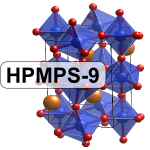Bridgmanite (Mg-silicate perovskite) (hereafter “Brg”) is the most abundant mineral in the lower mantle. The Brg occupies about 70% in the lower mantle (Irifune, 1994), if we assume pyrolite mantle. Because the Al is mainly incorporated into Brg in the lower mantle, the investigation of the Al substitutution mechanism into Brg is very important.
The phase diagram in the system MgSiO3-Al2O3 has been investigated so far based on high pressure experiments (e.g. Irifune et al., 1996; Kubo and Akaogi, 2000).The Al substituion is considered to be Tschermak substitution (Mg2+ + Si4+ = 2Al3+). However the compositions of the synthesized Brg show the deviation from the ideal join of MgSiO3-Al2O3. Some researchers insist that oxygen-vacancy substitution (Si4+ = Al3+ + 1/2Vo, here Vo shows oxygen vacancy.) exist for the Al substitutution into Brg (e.g. Kojitani et al. 2007). In addituion, we recently recognized that Al-bearing Brg can contain significant amount of water up to ~0.8 wt% because of the Al-H coupling substitution (Si4+ = Al3+ + H+). Thus, the Al substitution mechanism into Brg is very complicated.
To clarify the preferred Al substitution mechanism into Brg, we conducted the series of high pressure experiments. The targets to be clarified are as follows: 1) Are there any compositional dependence for the preferred substitutions as a function of Al? That is, which substitution is preferred in low Al or high Al content? 2) If hydrogen exists in the lower mantle, hydrous Brg is preferred to be formed? 3) If there are no hydrogen in lower mantle, which substitution is preferred, Tschermak substitution or oxygen-vacancy substitution? 4) Are there any compositional dependence to be preferred Al substitution in the terms of MgO excess or SiO2 excess condition? 5) What is the reason for the deviation from the ideal join of MgSiO3-Al2O3 in the previous works? 6) What kind of Al-bearing Brg should be existed in the lower mantle?
High pressure and high temprature experiments were conducted at ~28 GPa and ~1600℃ using Kawai-type apapratus in GRC, Ehime University. Special care has been done for the sample preparation and capsulation. Especially, to achieve the extremly anhydrous condition in our experiment, the glass rods were used as the starting materials to eliminate the absorbed water on the sample surface. Those results will be presented.

 PDF version
PDF version
